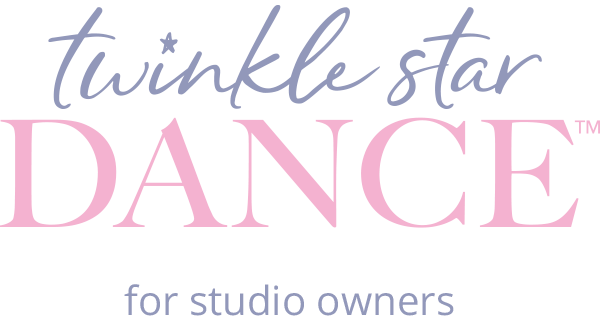Preparing for a recital performance can be both thrilling and nerve-wracking for dancers. The spotlight, the audience, and the pressure to deliver a flawless performance can be overwhelming. However, incorporating positive psychology into the preparation process can make a significant difference, not only in performance quality but also in the dancer’s mental and emotional well-being.
Positive psychology focuses on cultivating strengths, fostering a positive mindset, and enhancing overall well-being, all of which are incredibly beneficial when preparing for a dance recital. In this article, we’ll explore the benefits of positive psychology and how it can transform the way dancers approach their performances.
1. Boosts Confidence and Self-Esteem
One of the primary pillars of positive psychology is self-affirmation and recognizing one’s strengths. Dancers who focus on their abilities, rather than fixating on potential mistakes, are more likely to experience a boost in confidence. Positive affirmations and reflecting on past successes help dancers acknowledge their growth and skill, fostering a stronger sense of self-esteem.
When preparing for a recital, this positive self-view translates into greater belief in one's abilities. Dancers who feel confident in their preparation are less likely to be overwhelmed by performance anxiety, allowing them to focus more on executing their movements with clarity and precision.
2. Reduces Performance Anxiety
Performance anxiety is common among dancers, especially before a major recital or performance. Positive psychology offers effective tools to manage stress and anxiety. One powerful technique is mindfulness, which helps dancers stay in the present moment instead of worrying about future outcomes.
By practicing mindfulness, dancers can learn to accept their feelings of nervousness without letting them control their performance. Positive psychology also encourages reframing negative thoughts. For example, rather than thinking, "What if I mess up?" dancers can reframe this thought to, "I’ve prepared well, and I can handle whatever happens." This shift in thinking reduces the grip of anxiety and enhances emotional resilience.
3. Increases Motivation and Focus
Another benefit of positive psychology is that it nurtures intrinsic motivation—motivation that comes from within rather than relying on external rewards. When dancers adopt a mindset that values personal growth and enjoyment of the process, rather than just focusing on the end result, they are more likely to stay engaged and focused during practice sessions.
Research has shown that focusing on intrinsic goals leads to greater overall satisfaction and persistence. This mindset shift encourages dancers to put in their best effort, even in the face of challenges, and helps them stay present and focused in each moment of preparation, rather than getting distracted by doubts or external pressures.
4. Promotes a Growth Mindset
A growth mindset, a concept popularized by psychologist Carol Dweck, is a cornerstone of positive psychology. This mindset encourages dancers to view challenges, mistakes, and setbacks as opportunities for learning and growth, rather than as failures. In the context of recital preparation, a growth mindset helps dancers embrace the learning process, understanding that practice and persistence lead to improvement.
For example, if a dancer struggles with a particular move or sequence, a growth mindset allows them to approach the challenge with patience and a problem-solving attitude, rather than feeling defeated. This positive outlook fosters resilience, ensuring dancers stay motivated throughout their training and reach their full potential.
5. Encourages Gratitude and Enjoyment of the Process
Positive psychology emphasizes the importance of gratitude—appreciating the small moments and celebrating the journey, rather than fixating solely on the outcome. Dancers who practice gratitude during recital preparation are more likely to experience joy and fulfillment in their work. They may take time to appreciate their progress, the opportunity to perform, and the support of their teachers and peers.
By incorporating gratitude into their routine, dancers can shift their focus away from perfectionism or external validation, allowing them to find joy in the process itself. This shift not only improves their mental well-being but also enhances their performance, as they are more relaxed, focused, and present on stage.
6. Improves Overall Well-Being and Resilience
Finally, incorporating positive psychology into recital preparation enhances overall well-being. By fostering an optimistic outlook, practicing self-compassion, and embracing personal strengths, dancers can build emotional resilience. This resilience helps them bounce back from difficult moments during rehearsal or performance, allowing them to maintain composure under pressure.
A dancer who is emotionally resilient is less likely to experience burnout or frustration, and more likely to enjoy the rehearsal and performance process. Positive psychology’s emphasis on well-being ensures that dancers are not only physically prepared but mentally and emotionally equipped to succeed.
Incorporating the principles of positive psychology into dance preparation provides dancers with more than just the tools to improve their technique—it supports their emotional and mental health, helping them to perform with confidence, joy, and resilience. By fostering a positive mindset, dancers can reduce anxiety, increase focus, cultivate a growth mindset, and develop emotional resilience. Ultimately, this approach creates a more fulfilling and successful recital experience, both on and off the stage.
So, whether you’re preparing for your next recital or simply refining your skills, embracing positive psychology can be the key to unlocking your full potential and enjoying the journey along the way.
